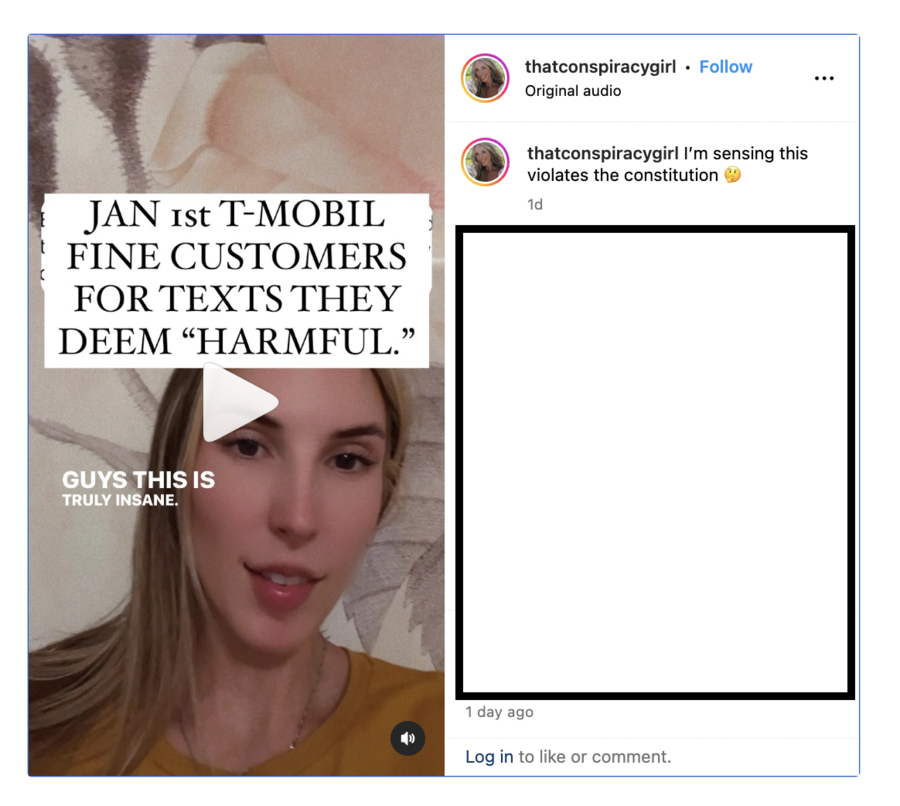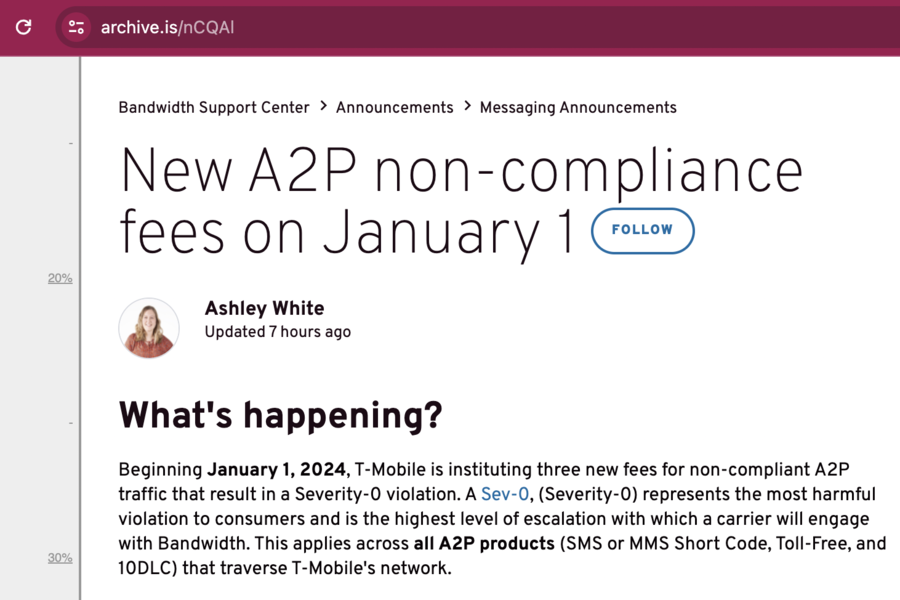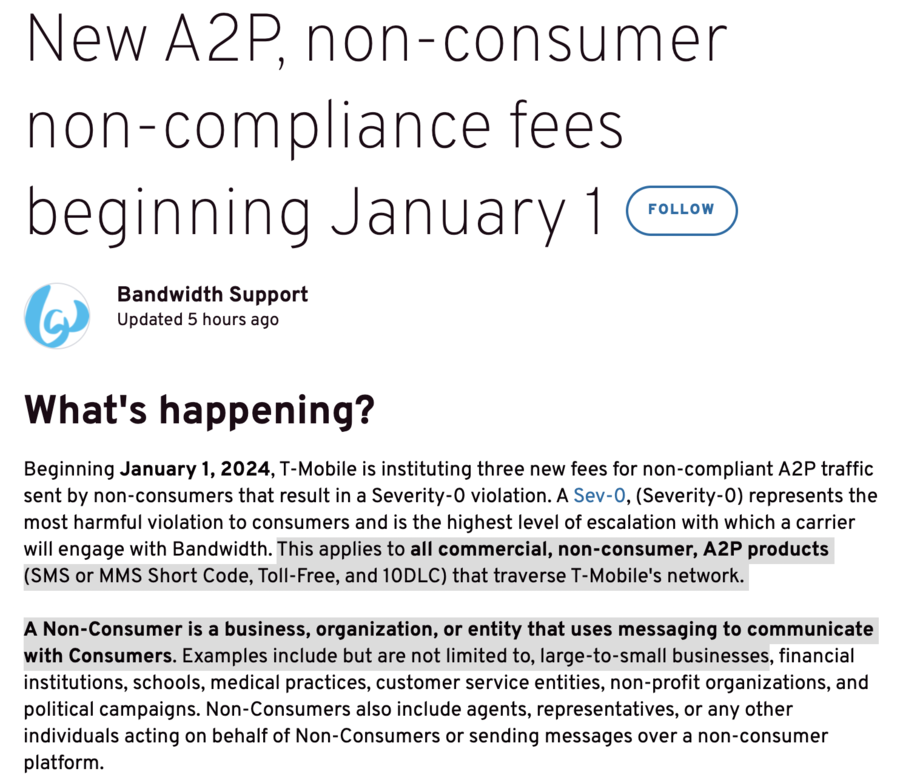
Will T-Mobile start fining individual customers in 2024 for sending texts or posting content the company doesn't agree with? No, that's not true: The claim on social media misrepresented the nature of the change that will only affect the third-party vendors sending out automated messages. T-Mobile told Lead Stories that the company doesn't "censor" personal texts.
The story appeared in a post (archived here) published on Instagram on December 27, 2023. A woman in the shared video opened:
Guys, this is truly insane. T-Mobile has just updated their Terms of Service, and now, if you post any content they don't agree with, they will fine you. They have an acronym called S.H.A.F.T. This stands for sex, hate, alcohol, firearms and tobacco. This is going to be implemented on January 1, and the fines that they will fine you is in the thousands. I had no idea that we lived in China. Since when does a company get to determine what you are allowed to talk about in a private text message to a friend?
This is what the post looked like on Instagram at the time of writing:
(Source: Instagram screenshot taken on Thu Dec 28 17:15:21 2023 UTC)
However, T-Mobile refuted the claim. The company's communications department told Lead Stories via email on December 28, 2023:
We do not and cannot censor personal texts. We only have filters that protect our customers from unwanted texts that could contain malware and other fraudulent or malicious activities such as phishing.
The changes only impact third-party messaging vendors that send commercial mass messaging campaigns for other businesses. The vendors will be fined if the content they are sending does not meet the standards in our code of conduct, which is in place to protect consumers from illegal or illicit content and aligns to federal and state laws.
The video on Instagram contained additional blocks of text in the add-on banners. The first one said:
Beginning January 1, 2024, T-Mobile is institutingthree new fees for non-compliant traffic that result in aSeverity-0 violation. A Sev-0, (Severity-0) representsthe most harmful violation to consumers and is thehighest level of escalation with which a carrier willengage with Bandwidth. This applies across allproducts (SMS or MMS, Short Code, Toll-Free, and10DLC) that traverse T-Mobile's network.
The same text could be found published on the website of Bandwidth (archived here), which is a North Carolina-headquartered company that developed (archived here) a nationwide all-IP voice network in the mid-2000s in partnership with Google.
Answering a follow-up question regarding the relations between T-Mobile and Bandwidth, a T-Mobile representative said that Bandwidth is a "content aggregator" and that "the information about the agreements we have in place was shared with aggregators directly."
The old version of the announcement on Bandwidth was archived on December 26, 2023. It matched the text seen in the video on Instagram, except for one notable exception -- the banner in the post on Instagram omitted the term "A2P":
(Source: Archive.Today screenshot taken on Thu Dec 28 Screen 20:17:48 2023 UTC)
According to another Bandwidth article (archived here), A2P stands for "Application-to-Person" messaging and specifically refers to "SMS or MMS messages sent from a business to a person." Had it been mentioned in the video on Instagram, it would have given a clue that the description of the update on social media was inaccurate.
By December 28, 2023, the announcement on the Bandwidth website had been updated. As of this writing, it explicitly stated that the change will not affect private text exchanges between individuals:
The Bandwidth announcement additionally specified that contrary to the claim, the highest fines -- $2,000 -- will be applied to phishing or similar activities aimed at manipulating individuals to reveal their credit card information or social security numbers. Both are known risks of engagement with automated texts.
Lead Stories reached out for additional comments from Bandwidth. If we receive a response, this article will be updated as appropriate.
Other Lead Stories fact checks about business-related topics can be found here.




















